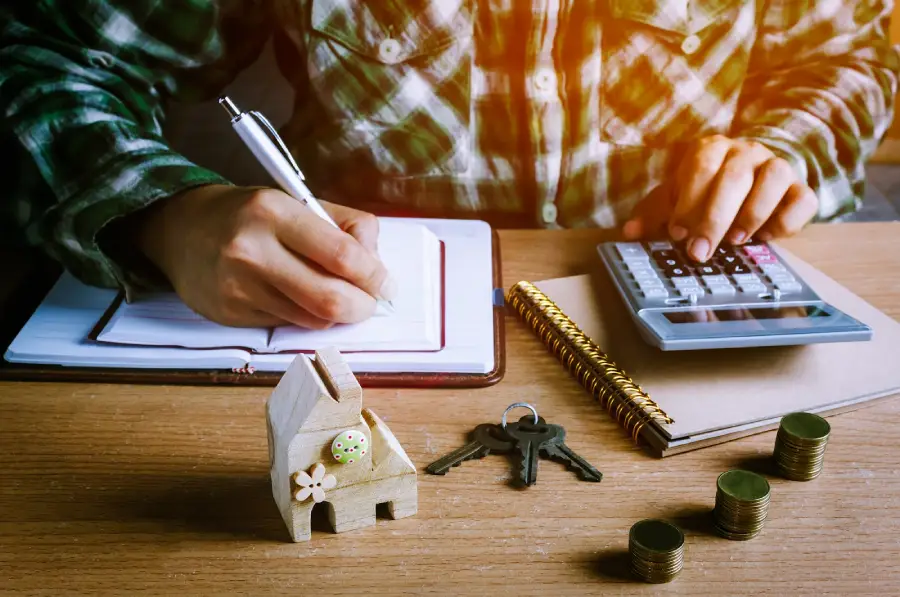When it comes to buying land to build your dream home in Nigeria, there are a few things you need to take into consideration. While the price of the land is important, it’s not the only thing you should be looking at.
In this blog post, we’ll discuss ten things you should look for when buying land to build a house in Nigeria. Whether you’re in Lagos or any other state in the country, these tips will help you make an informed decision about the property you purchase.
10 Things to Look for When Buying Land to Build a House in Nigeria
Below are ten essential factors to consider as a potential buyer:
1. Location

One of the most important things to look for when buying a piece of land to build a house in Nigeria is a good location. Nigerians still worry a lot about safety, so the land should be in a safe neighborhood.
It should also have a good slope. The topography of the land dictates what type of building you can construct and the costs associated with it. A steeper gradient may require additional framing techniques, leading to a higher construction cost. A flatter landscape gives you more options and lowers costs because you don’t have to move materials up and down steep hills.
So, ensuring that the slope of the land is within a reasonable range can save money on overall building costs. In cases where there are limitations due to too many slopes, finding innovative solutions which would not burn a hole in the budget may be necessary.
2. Land Title
Before you buy any parcel of land, it is important to check the land title to ensure that it is legitimate and that there are no outstanding claims or encumbrances on the property.
You can do this by going to the Land Registry Office and requesting a search of the title deeds. Other property documents to confirm include a survey plan, deed of assignment or conveyance, government gazette, certificate of occupancy (C of O), governor’s consent, or government allocation.
3. Inspect the Land
Before you commit to buying land in Nigeria to build a house, it is crucial that you take the time to inspect the land. This will involve determining how much land costs, road access, and if water and electricity are available. In addition, you should assess the land’s condition, checking for factors such as land elevation, land subsidence rate, and any land degradation signs like abnormal soil erosion or contamination of ground-level water sources.
For those especially serious about their purchase of land for sale, it is wise to consult with a professional surveyor to better assess these conditions. The risk lies in investing your hard-earned money into an unusable plot of land, which will not only lead to financial losses but also detract from your dream of building a home. An experienced surveyor’s assistance in land inspection can prove invaluable when selecting the right land for your upcoming construction project.
4. Size of the Land
As a prospective buyer, you should also consider the land size. The size of the land will determine how big your house can be and how much space you will have for other things like gardens and parking. Land sizes are measured in plots, acres, and hectares.
- Plot
A piece of land measuring 50 ft × 100 ft is regarded as a plot. It can accommodate a standard house with a compound wide enough to take in a car or two. This size, however, varies with location. A plot can be 300 square meters (SQM), 450 SQM, 500 SQM or 600 SQM.
- Acre
This measures up to 6 plots at 60 ft × 120 ft per plot. It is about the size of a standard football field and totals 40% of a hectare.
- Hectare (ha)
A hectare is a land that measures up to 338 ft × 328 ft. It is the biggest of the three land sizes with 15 plots, i.e., two and a half acres.
5. Zoning Regulations
Before you buy any land, you should find out about zoning regulations in the area. Zoning regulations dictate how the land can be used and what type of development can take place. For example, some areas may only allow residential homes, while others may also allow commercial or industrial development.
You should confirm this at the town planning office of your state before making a purchase.
6. Check for Building Restrictions
Building restrictions can dictate things like the height of buildings, setbacks from property lines, and maximum lot coverage. It is important to ensure that you are aware of any building restrictions before purchasing any land.
7. Proximity to Social Amenities

When searching for the perfect piece of land to build a house in Nigeria, it’s vital to consider accessibility to public services and utilities. Access to basic utilities and services like running water, electricity, sewage systems, hospitals, gas stations, schools, grocery stores, and more are essential for daily living and can help make life much more convenient from the start.
Along with utility services, being close to places of entertainment such as malls, gyms, cinemas, or other recreational activities can also be beneficial. It is essential to pay attention to undeveloped land and the distance between it and all these amenities. You want direct access, so you don’t have to travel long distances whenever you need something. Keeping all of these considerations in mind will set you up for a smooth and enjoyable experience after settling into your new house.
8. Budget

Before investing in a piece of land to construct your home in Nigeria, it’s essential that you understand the financial commitment required. Having an accurate document of all necessary documentation and the cost of construction is vital to ensuring time and money aren’t wasted on the construction process.
Before taking on this task, it is recommended that you consult with a professional, such as a real estate agent or property developer, who will be able to help you map out a plan for what needs to be done, including document acquisition and cost estimation.
You should also factor in other associated building costs, such as taxes to pay, site costs, building plan fees, finishing costs, etc. This plan will assure that all steps are taken in the land-buying and building processes and that the budget needed is met without exceeding it.
9. Consider the Future
For prospective property owners in Nigeria, it is important to think ahead and consider the future when making a land purchase. The ideal lot should accommodate any prospective plans of expansion – one must ensure the chosen environment allows space for gardens, garages, or other constructions you may wish to build later on.
Additionally, it is prudent to consider any possible natural disasters that could affect your immediate area; investigating prospective flood risk and other forms of weather is crucial before signing a loan agreement or investing in the long-term investment that owning your home implies. It’s also essential to verify access roads for easy transportation when necessary.
Considering how the land investment will affect your family in the long run, will help you make a smart choice that will keep your family safe and comfortable for years to come.
10. Speak with a Professional

It is always a good idea to speak with a professional who can help you make the best decision for your needs. A real estate agent or lawyer can provide valuable advice and assistance throughout the buying process.
By following these tips, you will be better equipped to make an informed decision about buying land to build your house in Nigeria. Remember to do your research, ask questions, and get advice from experts before making any purchases.
Documents Needed Before Building a House
Certificate of Occupancy
The Certificate of Occupancy is issued by the state or local government, indicating that the property is zoned for residential use and meets all the building code requirements.
Building Permit
A building permit or approval is an official document that allows individuals to legally construct, enlarge, alter, demolish, or move a structure within the jurisdiction of a local authority. It is designed to promote and maintain public safety and general welfare through compliance with building regulations and other laws.
Obtaining a building permit involves filling out an application, providing plans and drawings of the proposed project, undergoing inspections, and typically paying fees. Without a valid permit in place that meets the requirements set out by your local authority, construction cannot commence.
It is, therefore, important to understand what is necessary in order to be in compliance with your state’s building regulations before beginning any kind of construction project.
Site Plan
A site plan is a drawing that shows the location of the proposed house on the property. It should also show the dimensions of the house and any other structures on the property, such as garages, decks, etc.
Foundation Plan
The foundation plan shows the dimensions and layout of the foundation for the proposed house. It is used by the contractor to determine where to pour the concrete for the foundation.
Floor Plan
The floor plan shows the layout of each floor of the house. It is used by the contractor to determine where to place walls, doors, and windows.
Elevations
Elevations are drawings that show what the house will look like from each side. The contractor uses them to determine where to place siding, brick, stone, etc.
Specifications
The specifications are a list of materials that will be used in the construction of the house. The contractor uses them to obtain pricing for materials and labor.
FAQs on 10 Things to Look for When Buying Land to Build a House in Nigeria
What Should You Know Before Buying Land in Nigeria?
When buying land in Nigeria, it is important to consider factors such as the location, land title and size, zoning regulations, building restrictions, appreciation rate and utility access. For best results in finding a suitable piece of property for your needs, it is recommended that you consult with a real estate agent or lawyer who can offer professional advice on these matters.
What Do I Need to Know Before Building a House in Nigeria?
When building a house in Nigeria, you need to consider factors such as zoning regulations from the town planning office, a budget for construction materials, and labor costs. It is also advisable to speak with an experienced building contractor who can provide an estimate of the total cost of construction.
Are There Any Taxes Applicable When Buying Land in Nigeria?
Yes, there are taxes applicable when buying land in Nigeria. These include annual property tax and capital gains tax. It is important to check with the local government office to find out more information about these taxes before you make a purchase.
How Do I Know If My Land Is Good to Build a House?
You should check the land title (documents) with the appropriate quarters to ensure there are no outstanding claims on the property. You should also inspect the land for water, electricity, and sewer availability restrictions.
What Questions to Ask Before Buying Land in Nigeria?
. Title on the land
. What zoning restrictions are there on the property that could impact future uses or development potentials?
. Are there any existing structures on the land that will need to be demolished/removed before construction can commence, and what is their condition/status quo currently
. What is the estimated cost of developing the land for its proposed use, factoring in all necessary infrastructure works (roads, drainage, power, water, etc.)?
. How long will it take to get all necessary permits and approvals for the development from government agencies etc.?
Conclusion
Now that you’ve learned the ten essential things to look for when buying land to build a house in Nigeria, it’s time for you to start looking into the perfect location and what pieces of available property would be best for you. Be sure to consider all of the points listed above and compare them according to your specific needs and requirements.
By doing so, you should be able to secure the perfect land to build a house on in no time and ensure that your investment stays safe and gives you many years of happiness. So go ahead and start searching now!











